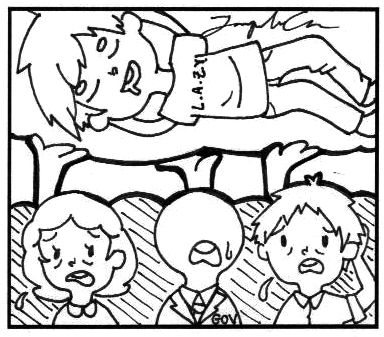A Generation of Indolence or Opportunity Shortages?
As teenagers, one of our biggest concerns is fussing over how much our parents can support us. However, when the Opportunity Nation coalitions came out with a recent report that approximately six million of American youth, from 16 to 24, are neither in school nor in work, it is apparent that adolescents are even more directly affected by the current economy. This suggests the poor state of our economic conditions, but it also brings up the attitudes both from and toward today’s youth as well as from society itself.
According to the Huffington Post, some of the nation’s largest cities, including Los Angeles, have more than 100,000 idle youth. Also according to the Huffington Post, research has demonstrated that in the absence of school, teens are more likely to be involved in crimes and to rely more on government assistance, which is a slap in the face to their parents who worked so hard for them to be successful and educated. All these youths are not accumulating human capital in the form of education or work experience, which negatively impacts the success of their futures. Not only are they choosing to put aside the American Dream past generations struggled for, but they are also choosing to live off of the help of the government, also known as the taxpayers’ money. It hardly seems fair that those who do end up finding employment will be working twice as hard to provide for themselves and the rest of their sorry unproductive generation.
According to the Opportunity Nation, this category of youth include those living in poverty and individuals with a lacking education—high school dropouts and those with a high school diploma as their highest degree. Social and economic status has much to do with the rate of unemployment, since those with a lower income and with a poor community are more likely to be out of work. However, the Bureau of Labor Statistics also reported that among those marginally attached to the labor force, there were 852,000 discouraged workers as of September 2013. Giving up on job searching due to the belief that jobs are not available should not be an acceptable excuse for not doing anything.
Each employer is different and is looking for a multitude of qualities in an employee which a prospective worker might possess. Also, according to the White House website, over 3.9 million jobs in the private sector were added within the last two years. There are always options for even the most disadvantaged youth, and maybe all a successful job search needs is open-mindedness and creativity.
This problem can only be solved through cooperation of employers and determination of the individuals. For example, the Opportunity Nation’s Shared Plan currently attempts to help with educational and employment opportunities through a combination of community and employer action, local innovation and reform of federal policies.
Six million American youths out of school and work is a rather depressing finding that we, as part of this disconnected generation, should be aware of. It is important that we do not give up on our education and on our job searches, because there is always hope.
